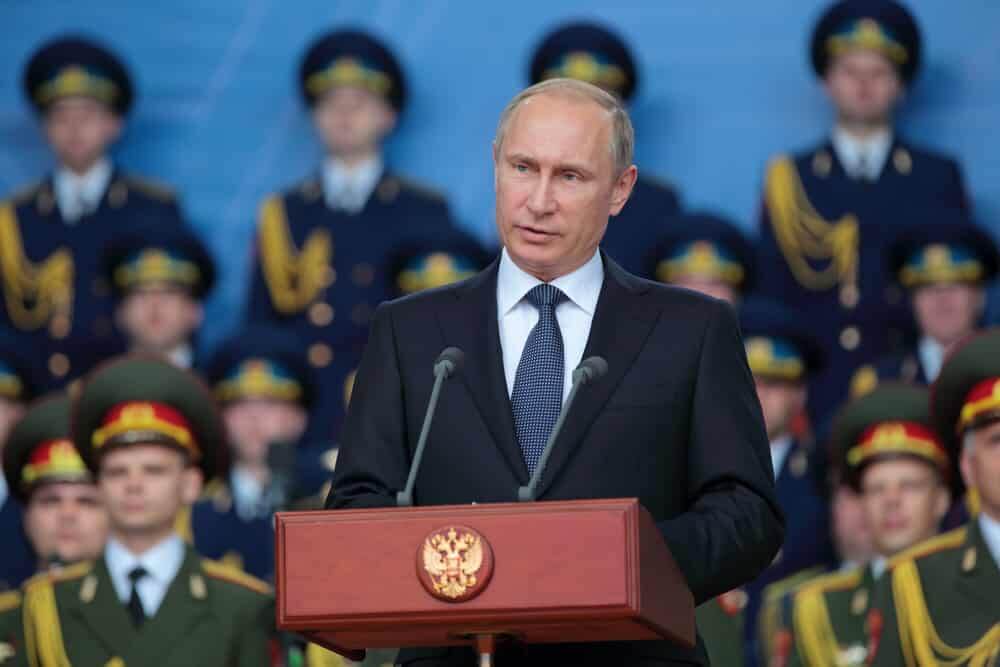
EURUSD is still in the range of 1.13000-1.14000
EURUSD chart analysis
During the Asian session, the euro weakened against the dollar. Last night, Russia recognized two breakaway, self-proclaimed areas in eastern Ukraine as independent states. Immediately afterwards, Russian military troops entered the area. They began combat activities, so there is a “risk-off” sentiment on the market, so the dollar is like a transaction” “safe haven” in a current rush. During the European session, the euro recovered and is now exchanged for 1.13500 dollars, representing the strengthening of the common European currency by 0.37% since the beginning of trading tonight.
Stock markets fell on Tuesday as bonds and commodities strengthened after Russian President Vladimir Putin ordered troops to enter breakaway regions of eastern Ukraine. EU ambassadors are meeting today to discuss their sanctions plan … The US response is probably more important. This boils down to whether this is called an ‘invasion’ or not.
The path of the Russian-Ukrainian crisis remains unclear with potentially increased market instability in the short term, and tightening monetary policy remains, in our view, a key risk for stocks as central banks try to reorient inflation expectations aggressively.
Excessively restrictive monetary policy could lead to a complete policy error, especially if the business cycle continues to deteriorate. The Russia – Ukraine crisis could force a reassessment of the FED tightening path, leading to central banks becoming less hawkish, while policymakers may consider an additional fiscal stimulus.
Looking at the EURUSD chart, the picture is not the clearest, and we can still expect the side movement of the pair in the range 1.13000-1.14000. Moving averages are in the middle of this sideways consolidation and are not helping us now.
Bullish scenario:
- We need EURUSD growth above 1.14000 to try to jeopardize the previous resistance zone 1.14850-1.15000.
- A break above would open us to the following potential targets at 1.16000, then 1.17000.
Bearish scenario:
- We need a negative consolidation and withdrawal of EURUSD below 1.13000.
- With increased bearish pressure, such a break could bring the pair down to around 1.12000 and even to a new test of the previous low to 1.11200.
Market overview
German business confidence improved to a 5 month high in February, despite the Ukrainian crisis, the Ifo Institute’s research results showed on Tuesday.
The business confidence index rose to 98.9 in February from 96.0 in the previous month. This is well above the economists’ forecast of 96.5 and has reached its highest level since September.
The companies were more satisfied with the current business, and there was a significant improvement in expectations.
“The German economy is betting on ending the coronavirus crisis,” said Clemens Fuest, the International Employment Organization president. However, the crisis escalation that has hit Ukraine remains a risk factor.
The latest escalation of tensions between Russia and Ukraine will undoubtedly increase uncertainty. Still, the economic impact on Germany will probably be limited unless stringent sanctions are imposed, said Jessica Hinds, an economist at Capital Economics.
The business climate has risen sharply in production, IFO research has shown. The companies were more satisfied with the current situation. Their expectations were also more optimistic.
Although the order books increased again, the material shortage continued to hamper production, the institute notes.
The business climate has improved significantly in the services sector as an indicator of the current business situation, and expectations jumped in February.



